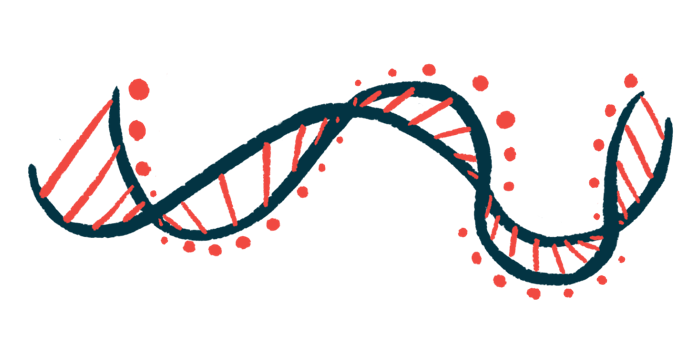Global data support RAB32 gene mutation’s link to Parkinson’s
Mutation is more than 100 times more prevalent in patients from ROPAD study
Written by |

A mutation in the RAB32 gene, which has been previously associated with Parkinson’s disease, was found in a significant number of individuals participating in an international study.
Specifically, researchers found this mutation more than 100 times more prevalent in Parkinson’s patients than in the general population.
These data came from the Rostock International Parkinson’s Disease (ROPAD) study, launched by Centogene in 2018 to better understand Parkinson’s diagnosis, progression, and treatment by characterizing the genetics of the disease.
These results were published in a correspondence, titled “RAB32 mutation in Parkinson’s disease,” in The Lancet Neurology.
Previous research shows RAB32 mutation linked to higher Parkinson’s risk
Based on previous results from University of Florida researchers, which found that those who carry a specific mutation in the RAB32 gene have a higher risk of developing Parkinson’s, “we were able to dive into our ROPAD cohort to develop a deeper understanding of [RAB32 mutation] as a cause for Parkinson’s and shed light on the way to a potential cure,” Peter Bauer, MD, chief medical and genomic officer at Centogene, said in a press release.
Parkinson’s is caused by the gradual degeneration of nerve cells that produce dopamine, a chemical messenger used by cells to communicate and that’s involved in motor control.
While most Parkinson’s cases are sporadic and affect one family member, around 15% of Parkinson’s patients have a family history of the disease, which means that its cause is likely genetic. However, having a mutation associated with Parkinson’s does not necessarily mean a person will develop the disease.
Mutations in the LRRK2 gene are one of the most common genetic causes of Parkinson’s and are linked to the activation of the LRRK2 enzyme. More recently, a novel association between the disease and a mutation in the RAB32 gene, called Ser71Arg, was also identified. This mutation also activates the LRRK2 enzyme.
Our collaborative efforts have highlighted the critical impact of genetics on Parkinson’s disease and emphasize the importance of incorporating genetic testing into the standard care of these patients.
The ROPAD study (NCT03866603) is a global epidemiological observational study to explore the genetics of Parkinson’s disease.
Using data from ROPAD, 3,354 Parkinson’s patients, 55 years or younger, with a family history of the disease but had no known gene mutations, were identified. Nine (0.3%) of them were found to carry the RAB32 Ser71Arg mutation in one copy of their gene.
This proportion was significantly higher than the 0.002% seen in the general population, suggesting a strong association between this mutation and Parkinson’s disease. The patients carrying the mutation came from Germany, Italy, Spain, and Turkey.
The study also confirmed that certain clinical characteristics differed between patients who had the mutation and those who did not. Namely, 78% of those positive for this mutation were women. However, the age at disease onset remained similar at a mean of 52 years old, regardless of sex.
Data suggest mutation could be traced back to common ancestor
These data corroborate previous findings that this particular mutation could be traced back to a common ancestor of a specific population or geographical region, the researchers noted.
“The study results are a perfect reflection of the significance of data and collaboration in establishing a deep disease understanding,” said Krishna Kumar Kandaswamy, PhD, vice president of research and development bioinformatics at Centogene. “By assembling the world’s largest genetic Parkinson’s disease [group of patients], we have gained unprecedented insights that will fuel further research, clinical development, and ultimately, improved patient outcomes.”
Centogene recently launched the ROPAD Consortium to build on these findings and accelerate Parkinson’s research. By partnering with neurologists and nonprofit organizations, the consortium seeks to streamline access to essential data and improve treatment options for Parkinson’s.
“Our collaborative efforts have highlighted the critical impact of genetics on Parkinson’s disease and emphasize the importance of incorporating genetic testing into the standard care of these patients,” said Christian Beetz, PhD, senior director of genomic innovation at Centogene.




